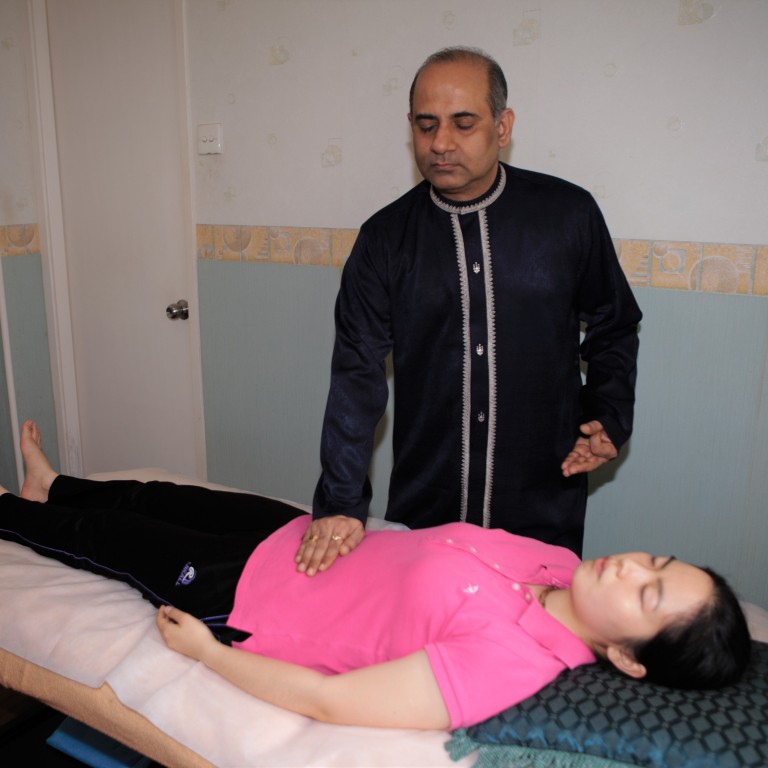
3 women who got pregnant after Ayurvedic treatment talk about overcoming infertility
- Modern infertility treatments can be draining both emotionally and financially, with some couples turning to Ayurveda, a form of traditional Indian medicine
- Ayurvedic expert Vinod Sharma has helped many couples overcome complications with fertility. Three of his patients talk about their journeys to motherhood
Infertility is an intimate issue that can affect a couple’s relationship when they discover they cannot have a child. It is a global public health issue, affecting 48 million couples and 186 million individuals of reproductive age, according to World Health Organisation (WHO) estimates. About one in six couples in Hong Kong is unable to bear children, according to the Department of Health.
The condition is usually a result of an ailment in the reproductive system, either a man’s or woman’s, that affects both sexes equally. Misconceptions about the causes of infertility thrive, as does the associated social stigma and sense of lost pride.
Even with advances in modern medicine and infertility treatments, the procedures can be draining, both emotionally and financially. Some couples have turned to Ayurveda, a form of traditional Indian medicine.
The WHO recognises Ayurveda as a medical science, analogous to traditional Chinese medicine, which embodies a wealth of empirical healing knowledge. In India, Ayurvedic medicine is officially recognised and legally on par with conventional modern medical science, serving almost 1.4 billion people.
What is Ayurveda? History, treatments, doshas explained
Ayurvedic expert Vinod Sharma, 60, has been practising in Hong Kong for the past 30 years and has helped many couples overcome complications with fertility.
“Ayurveda believes that a person’s physical and mental constitution, called prakruti, is comprised of three fundamental energies, or doshas: vata [air], pitta [fire] and kapha [water and earth],” he says. “A person’s health depends upon the three energies being in harmony.”
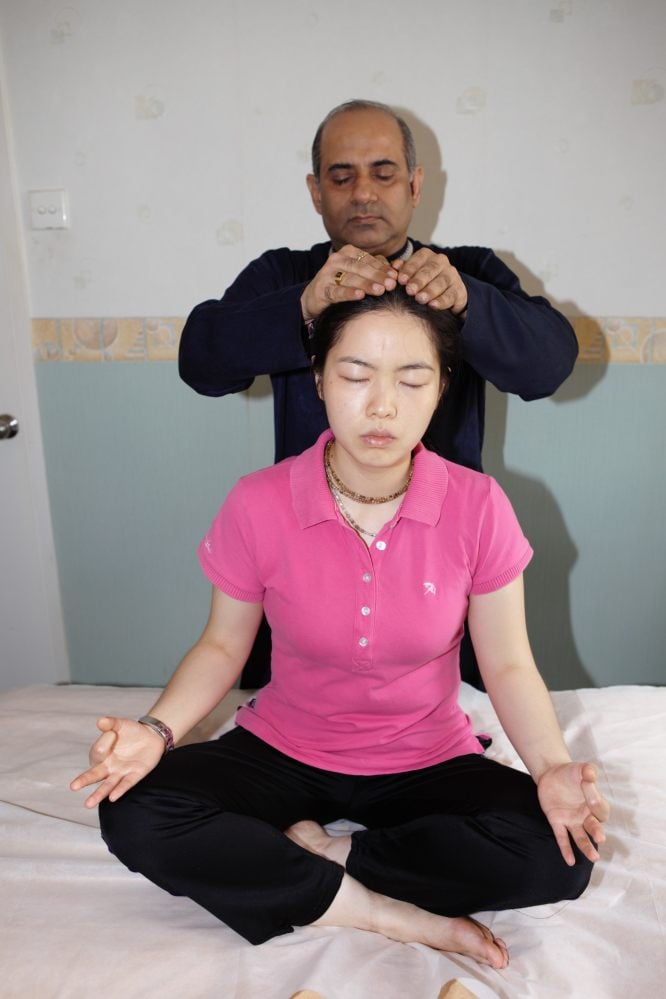
“Despite many consultations and tests, doctors were unable to tell my husband and I why we could not conceive. My gynaecologists told me that I may never be able to get pregnant. I was devastated,” says the corporate trainer, who was 39 and living in Hong Kong at the time. “I started looking for natural remedies and read about Ayurveda.”
Nirmala found Sharma online in 2006. “After the first consultation, Vinod read my pulse, explained my mind-body constitution in depth and recommended a set of diet and lifestyle guidelines for me to follow,” she says.
A 60-something yogi’s three-week quarantine workout for mind, spirit and body
Sharma explains that by reading Nirmala’s pulse, he found that her kapha dosha was weak and unbalanced and it was this that meant she could not conceive despite undergoing infertility treatments. “Her uterus was unable to hold the fertilised egg,” he says.
He did chakra healing sessions for Nirmala, placing his hands on or over parts of her body corresponding to core energy nodes or chakras. He held his hands for about three to five minutes at a time on each point, working to balance the energy flow.
“In Ayurveda, there are seven main chakras in the human body starting from the base of the spine to the crown of the head,” Sharma says. “The most important chakra is the third chakra called manipura, situated at the navel. When this chakra is dislodged it can cause health issues such as excessive menstrual flow and other fertility-related problems in both men and women.”
My body felt in sync. After just three months of following the diet and exercise plan, my husband and I were thrilled to find that I was pregnant the natural way
Sharma asked Nirmala to start eating more root vegetables such as sweet potato, yam and taro to bolster the earth element, and recommended adding spices such as black pepper powder and cumin seeds to aid in digestion and improve toxin elimination.
Sharma, who is also an experienced yoga teacher and qualified homeopathic consultant, explains that the yoga asanas helped improve the air circulation in Nirmala’s lower abdomen and the functioning of her ovaries, Fallopian tubes and uterus. “The homeopathic drops, Avena sativa [the oat plant], helped soothe the brain and the nervous system and has aphrodisiac properties as well,” he says.
Nirmala says she had gained weight from her infertility treatments, but the change in her diet and lifestyle that Sharma recommended helped her shed the extra pounds and also left her feeling healthier and stronger. “My body felt in sync. After just three months of following the diet and exercise plan, my husband and I were thrilled to find that I was pregnant the natural way.”
Nirmala recently gave birth to a healthy baby boy.
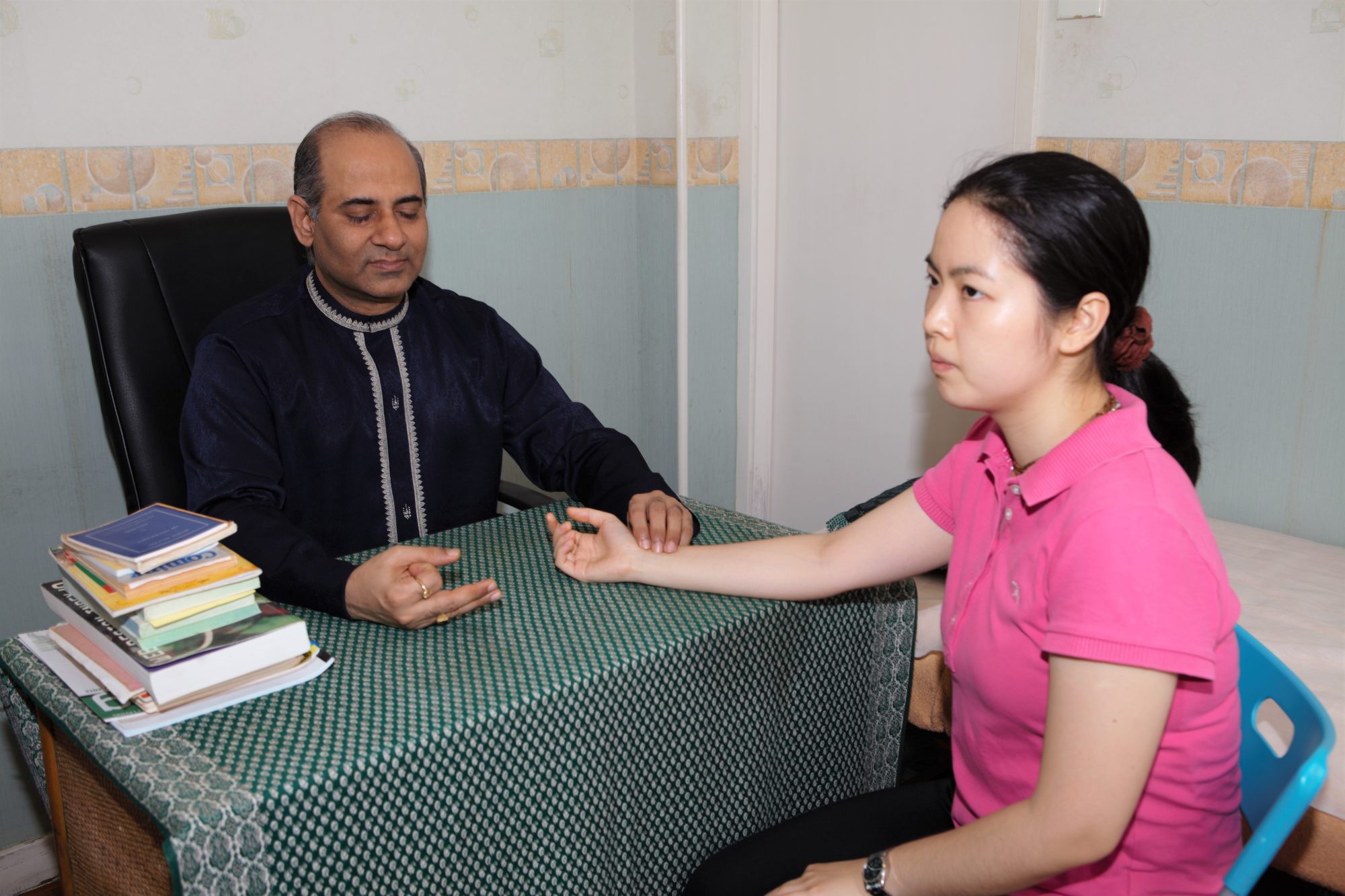
Laura Jovani (who asked not to use her name to protect her privacy) was diagnosed with polycystic ovary syndrome (PCOS), a hormonal disorder, when she was 32. It is characterised by infrequent or prolonged menstrual periods in which the ovaries develop collections of fluid and fail to release eggs.
“I was very distressed when I was diagnosed with PCOS. I was keen to start a family,” says the 40-year-old yoga teacher and long-term Hong Kong resident.
She consulted Sharma in 2012 on a friend’s recommendation.
“Laura’s pulse showed that her vata dosha, or air element, was out of balance. According to Ayurveda, the vata dosha in the pelvic region is responsible for regulating ovulation. When the vata element is weak, the egg is not released and remains in the ovary, often causing the formation of cysts. If the force of the air in the ovary is too strong, the egg is released prematurely and is unable to be fertilised,” Sharma explains.
He also did chakra balancing sessions for Jovani. “He made changes in my diet to eliminate foods that cause excessive air, such as nuts, beans and fermented foods,” she says. “The change in my diet along with a daily yoga practice of postures recommended by Vinod made a big difference. I felt lighter and better and conceived naturally within five months. When I went for a check-up, my gynaecologist was surprised to see that had I conceived.” She also gave birth to a baby boy.
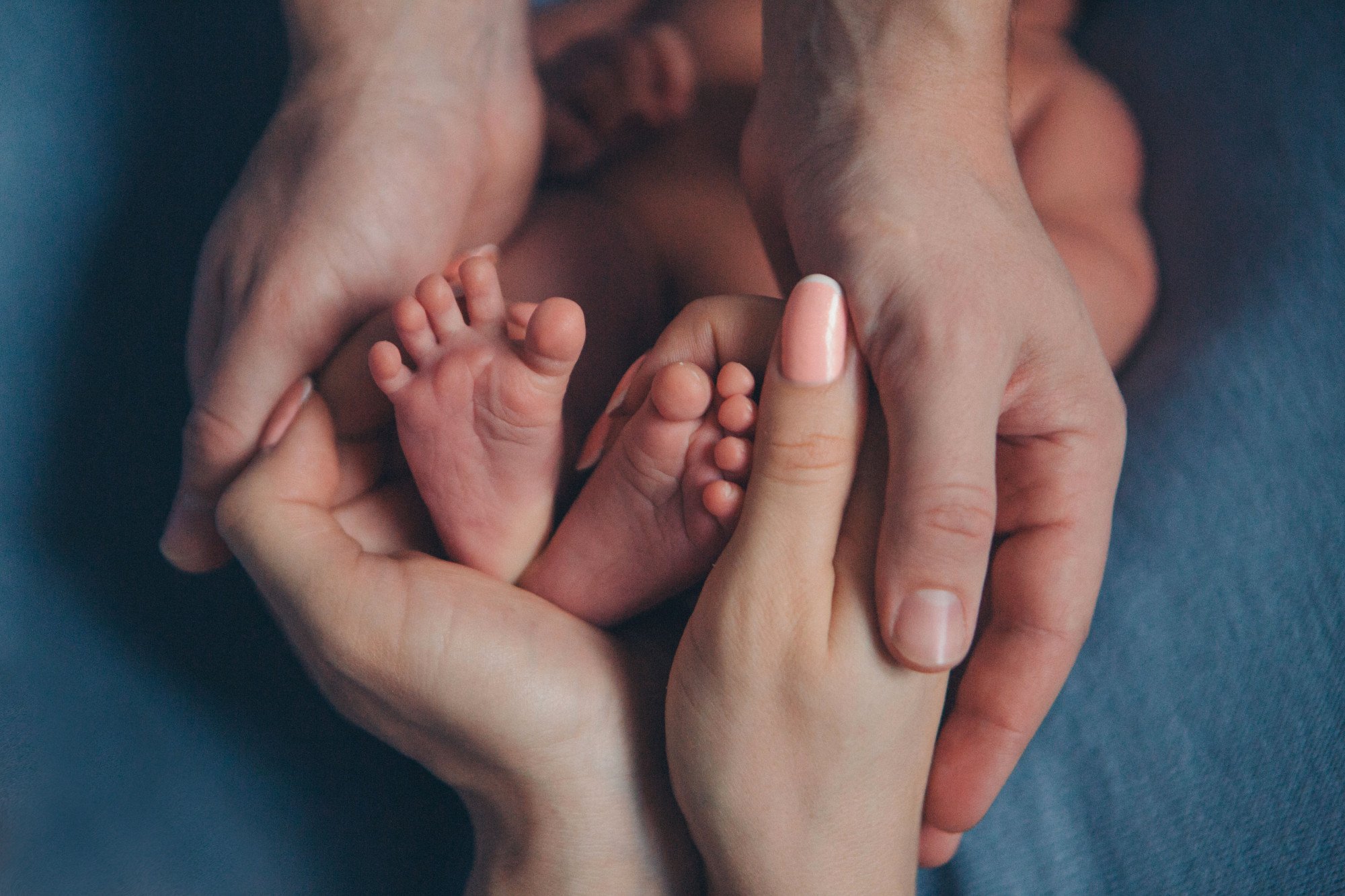
Kiran Kaur, a homemaker in Delhi, wanted a second child. “I had a two-year-old daughter and had been trying to conceive again for five years,” the 34-year-old says. “I suffered two miscarriages and was distraught. My periods were irregular and my body had gone through so much.”
She consulted Sharma on her sister-in-law’s recommendation.
“Vinod gave me Ayurvedic medicines called bhasmas [powders made from metals and precious stones, in particular iron and coral] to increase the iron levels in my body and strengthen the muscles. He also suggested that I practice pranayama [breath control], in particular anulo vilom [alternate nostril breathing], daily,” Kaur says.
Sharma says that the right combination of herbs helps regulate the menstrual cycle, reduces anxiety and improves blood flow to the pelvic cavity, thereby promoting fertility. Alternate nostril breathing balances the air circulation within the energy channels, he adds.
“With the practice of pranayama my anxiety and stress levels reduced,” Kaur says. “Within three months my periods became regular and I conceived within a year.” She later gave birth to another daughter.
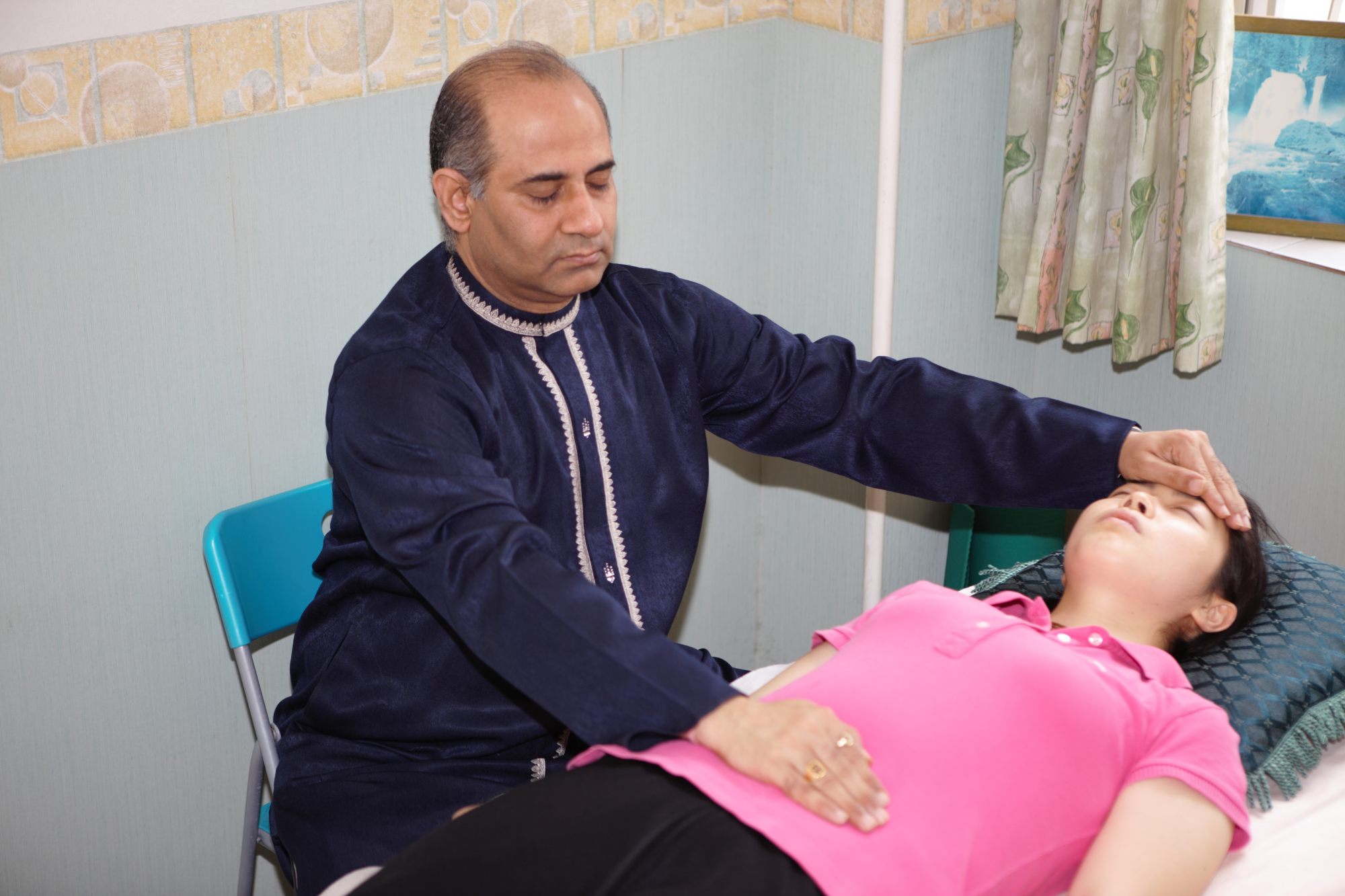
So how does traditional Indian medicine succeed in helping women have babies?
“Ayurveda supports health by strengthening the body’s own healing and balancing mechanisms,” Sharma says, adding that its approach to fertility is to improve the patient’s physical and mental health, leading to a higher likelihood of pregnancy.

